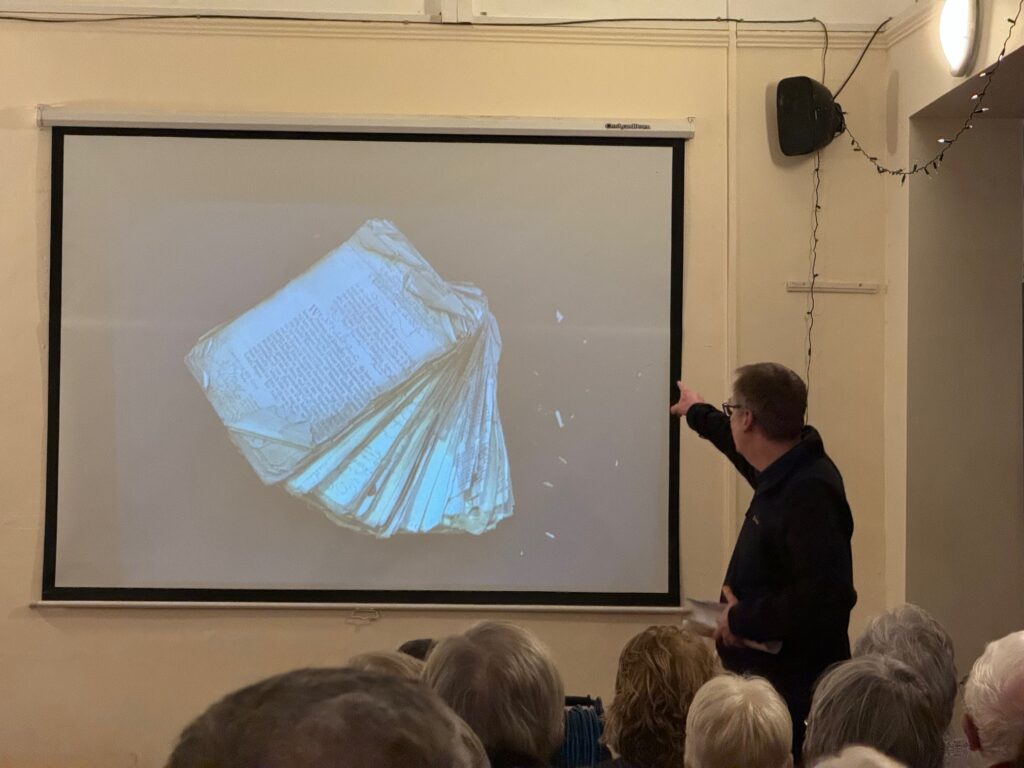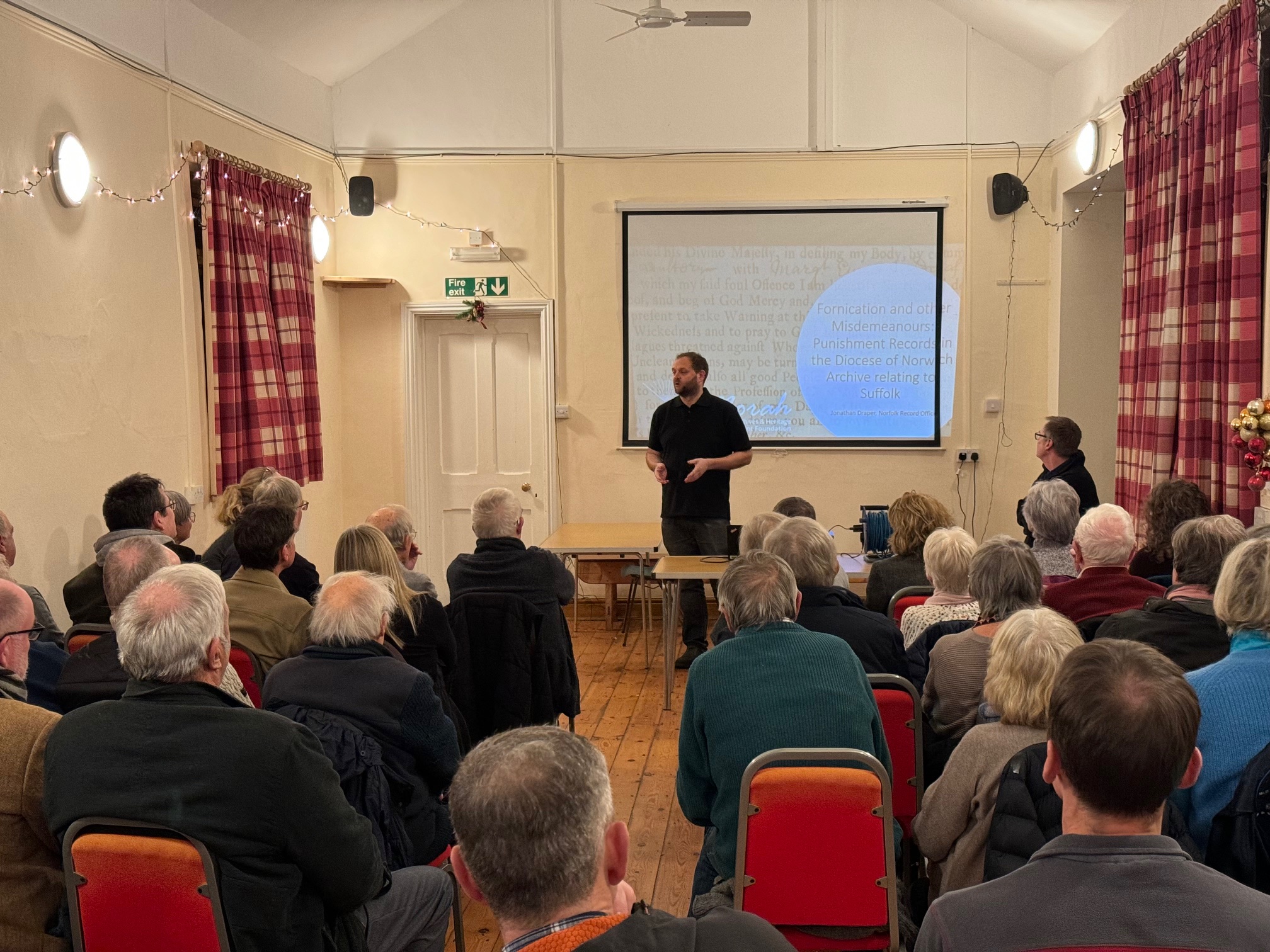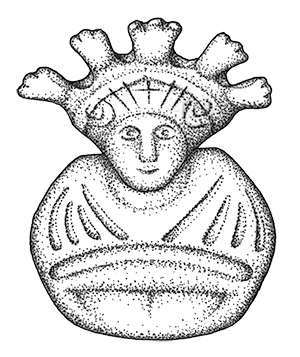
A wet and windy evening early in December, despite the weather, the dark, and it being a Monday, saw Lidgate Village Hall fill to capacity with an audience both from Lidgate and further afield, for our joint winter event with the Star at Lidgate. Jonathan Draper of the Norfolk Record Office (NRO), a speaker who was very kindly introduced to LAG by Julian White of the Star, presented a fascinating talk entitled ‘Fornication and other Misdemeanours: Punishment Records in the Diocese of Norwich Archive relating to Suffolk’, a subject matter which – for reasons perhaps best left to speculation – saw ticket sales reach an all-time high.

Julian introduced our speaker and gave a quick overview of the new developments at the pub including, excitingly, their own plans for a series of history talks. Jonathan then spoke for about an hour on the challenges faced by the NRO, supported by NorAH (Norfolk Archives & Heritage Development Foundation), in handling, deciphering and cataloguing the fragile, numerous and densely worded post-Medieval to eighteenth century Diocesan court manuscripts in their possession. He also offered some fascinating examples of the records which offered a raw and intriguing insight into everyday life and local history, rarely glimpsed through other written archives.
These records of the Norwich Consistory Court, which due to the area of jurisdiction actually cover Suffolk as well as Norfolk, are said to be the ‘most salacious’ held at the NRO. Before the mid-nineteenth century, church courts had jurisdiction over many aspects of life, including matrimony, probate, church taxes, sexual promiscuity, and defamation. Punishments including spoken penances in church as well as financial levies were handed down from the Church courts for behaviour including fornication, adultery, lewd behaviour and incest. Misbehaviours were brought to the attention of the Court via several routes: complaints by one parishioner against another, the seven-yearly interrogation of individual churches by the Consistory Court, or indeed the appearance of a child out of wedlock.
The records and often very spicy witness statements, using language relatively rarely heard in the Village Hall, also offered a disturbing insight into the disparity between the treatment of men and women. In one case of attempted rape the defendant was bringing his female accuser to court for defamation, rather than being tried himself for the crime. Financial penances for women were demonstrably frequently higher than for men, and furthermore midwives were forced by the church to report unmarried mothers who came to them for help during birth – they would insist on knowing the name of the father before help was given. However, women were also capable of spectacular acts of revenge, as in the colourful case of Mary Thornton of Ipswich who had a lengthy affair with a clergyman and did probably irreversible damage to his reputation by accusing him of this in the consistory courts in the hope of gaining financial support for her illegitimate child.
The talk concluded amidst much appreciation from the audience who then repaired to the newly reopened Star for a delicious buffet supper, a great selection of beers and drinks and a warm fire provided by Julian W, Julian S and helpers. LAG hope to run more joint events with the Star in the future.
You can support the work of NorAH and the NRO here: Unlocking the Norwich Consistory Court Archive – NorAH (norah-df.org.uk)
Dr Laura Perry, Secretary
